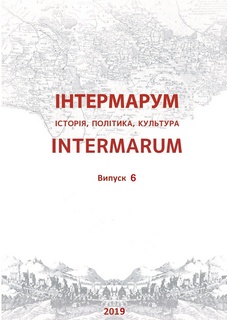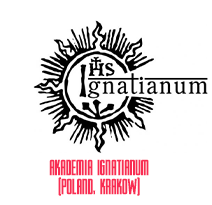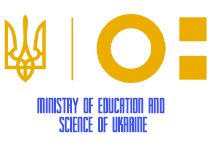МОВНІ ТА ОСВІТНІ ПРАКТИКИ НА ТЕРИТОРІЯХ ЗАХІДНИХ ГУБЕРНІЙ РОСІЙСЬКОЇ ІМПЕРІЇ В ХІХ СТ.: У ПОШУКУ НАЦІОНАЛЬНИХ СТАНДАРТІВ
DOI:
https://doi.org/10.35433/history.11194Ключові слова:
націотворення, мова, імперія, релігійна та світська освіта, іврит, їдишАнотація
Мовам належала одна із ключових ролей в націотворчих процесах ХІХ ст. Дослідження цих процесів в окреслений період неможливо поза межами імперського. Головним завданням запропонованої статті є аналіз та порівняння особливостей освіти та мовних практик, які характеризували розвиток єврейських та польських громад на так званих «західних окраїнах» Російської імперії. Ліквідація польських за характером навчальних закладів супроводжувалась розробкою варіантів включення польської молоді до загальноімперського контексту через систему освіти, й перш за все, вищу. Однак, збереження за польською статусу мови діловодства, судочинства, щоденного спілкування до Листопадового повстання 1830-1831 рр. значно ускладнило завдання асиміляції місцевих поляків.
Висловлюється припущення, що конкуруюче середовище, що було створене прихильниками використання івриту та їдишу, до яких долучались симпатики асимілітаційного проекту з орієнтацією на російську мову, сприяло кристалізації та унормуванню кожної єврейської мови із одночасним розвитком їх літературних стандартів. Проект зі створення єврейських вчительських інститутів з елементами світської освіти, російською мовою та російським керівництвом виявився нежиттєздатним через неможливість досягти їх узгодження з єврейською традиційно-релігійною освітою.
Методологія: у статті використано компаративний метод для порівняння мовних та освітніх практик представників польських та єврейських громад Південно-Західного та Північно-Західного краю протягом «довгого ХІХ ст.», елементи конструктивістської методології дозволили дослідити роль мовного маркеру в реалізації польського та єврейського національних проектів. Інструментарій так званої «нової імперської історії» дозволив розглянути не лише деструктивний вплив на розвиток національних мов в націотворенні. Окреслена методологія засвідчує й наявність елементу новизни в запропонованому матеріалі.
В Російській імперії від середини XIX ст. комунікативне домінування поступово закріплюється за російською мовою. Іншим мовам відводилися свої, локальні ніші, які значною мірою обмежували їх вживання та використання. намагання влади скоротити комунікативний простір використання національних мов та принизити їх статус мали цілком зворотній ефект. Їх утиски лише стимулювали творців національних «проєктів» докладати максимум зусиль для унормування, розширення сфер вжитку, активного використання в якості мов літератури та науки. Подальших досліджень потребують питання, пов’язані із закріпленням статусів державних мов у новостворених національних державах після руйнації однієї імперії та нових політичних обставин в умовах іншої.
Посилання
Budnitskiy, O., Miller, A., Dolbilov M. (scientific editor), Berezhna, L. (2006). The Western Outskirts of the Russian Empire. M.: NLO. 607. [In Russian].
Ben-Iyekhuda Eli’zer. https://eleven.co.il/jewish-languages/hebrew/10508/. [In Russian].
Chlebowczyk, J. (1975) Nation-forming Processes in Eastern Central Europe in the Era of Capitalism (from the late 18th to the Early 20th Century). Warsaw – Krakow, 37. [In Polish].
Hobsbawm, E. (2010). Nations and Nationalism, Starting from 1780: Program, Myths, Reality. K.: Ukrainian Center for Spiritual Culture, 288. [In Russian].
Dmitrieva, O. (2017). National Communities in the Belarus Territory during the World War I (1914-1918). Minsk, 118. [In Russian].
Dolbilov, M., (2010). Russian Land, Alien Faith: Ethno-Confessional Policy of the Empire in Lithuania and Belarus under Alexander II. M.: NLO, 1000. [In Russian].
Dubnov, S. (1998). The book of Life: Memories and Reflections: Materials for the History of My Time. St. Petersburg: Petersburg Oriental Studies, 672. [In Russian].
Dubnov, S. (1907). Letters on Old and New Jewry (1897-1907). St. Petersburg: Public benefit, 370. [In Russian].
The Election Newspaper of the Poltava Governorate Committee of the Yiddish Folkspartei Party (1917). November 9, № 3. [In Russian].
Eichenbaum, Y. (2011). Gakrab (Battle). A Poem about a Chess Game. Translation from Hebrew by O. Rabinovich. Salamandra, 97. [In Russian].
The Election Platform “Yiddish Folkspartei" (1917). http://www.rummuseum.info/node/5641.
Kappeler, A. (2005). Russia as a Multi-ethnic Empire: Emergence. History. Lviv, UCU Publishing House, 360. [In Ukrainian].
Kappeler, A. (2007). Center and Peripheral Elites in the Habsburg, Russian and Ottoman Empires (1700-1918). Ab Imperio, 2, 17-57. [In Russian].
Kappeler, A. (2010). Russia as a Multinational Empire: Some Thoughts Eight Years after the Publication of the book. Myths and Fallacies in the Study of Empires and Nationalism. Drafting editors: I. Gerasimov, M. Mogilner, A. Semenov. M.: New publishing house, 265-281. [In Russian].
Kasyanov, H. (1993). Ukrainian Intellectuals at the Turn of the 19th and 20th centuries. Socio-political Portrait. K.: Lybid, 178. [In Ukrainian].
Koyalovich, M (1865). Documents Explaining the History of the West Russian region and Its Relation to Russia and Poland. – St. Petersburg at the printing house of Eduard Prad, 123. [In Russian].
Liven, D. (2005). Empire, History and the Modern World Order. Ab Imperio, 1, 75-116. [In Russian].
Lysyak-Rudnitsky, I. (1994). Historical essays. T.1. K: Osnova, 554. [In Ukrainian].
Lithuanian State Historical Archives. (1775-1889). F.567. Op. 2. T.1. D. 32.
Lithuanian State Historical Archives. (1792-1832). F.439. Op. 1. D. 218.
Lithuanian State Historical Archives. (1792-1832). F.721. Op.2. T.1. D. 52.
Magochiy P-R., Petrovsky-Shtern, Y (2016). Jews and Ukrainians. Millennium coexistence. Uzhhorod, publishing house Valery Padyak. 1003. [In Ukrainian].
Manoilenko A., Manoilenko Y. (2017). A Brief Biographical Dictionary of Persons of Jewish Confession - Nobles of the Russian Empire (1871-1917). Reference publication. St. Petersburg, Petersburg Institute of Jewish Studies; Russian State Historical Archive, 100. [In Russian].
Miller, A. (2006). The Romanov’s Empire and the Jews. Public on polit.ua. http://www.polit.ru/article/2006/06/06/miller3//. [In Russian].
Miller, A., Ostapchuk, O. (2006). Latin and Cyrillic in the Ukrainian National Discourse and Language Policy of the Russian and Habsburg Empires. Slavic studies, 5, 25-48. [In Russian].
Mozer, M. (2008). To the History of the Ukrainian Language. Kharkov Historical and Philological Society. XVI, 832. [In Russian].
Niederhauser, E (1981). The Role of National Culture in the Formation of a Nation. The Formation of Nations in Central and Southeast Europe. Historical and historical-cultural aspects. M.: Nauka, 247-250. [In Russian].
Ostapchuk, O. (2004). Change in State Borders as a Factor in the Formation of the Language Situation in Right-Bank Ukraine at the Turn of the 18th-19th Centuries. Regions and borders of Ukraine in historical perspective. Yearbook. M.: Nauka, 2005, 227-253. [In Russian].
The Fundamental Law – Israel is a nation-state of the Jewish people. http://knesset.gov.il/laws/ru/yesodru16.pdf. [In Russian].
Petrovsky-Shtern, Y. (2009) Moshko the Imperial. Ab Imperio. 1, 115-146. [In Russian].
Program Documents of Russian Parties. https://cyberleninka.ru/article/n/natsionalnaya-programma-bunda-korrektivy-1917-goda/viewer.
Rudnitskaya, N. (2017). History of the Jews of Zhytomyr Region. Zhytomyr: FOB O. Yevenok. 370. [In Ukrainian].
Sorokin, R. (1873). M. N. Muraviov in Lithuania. 1831. Russkaia starina (Russian antiquity), T.8, 7, 114-118. [In Russian].
Tereshkovich, P. (2009). Borderland as a Fate: Metamorphoses of Identity in the East European borderland. Ab Imperio, 1, 191-226. [In Russian].
Ryvkina, H. Mendele-Moyer Sforim, "Grandfather" of Contemporary Jewish Literature. Publications in the funds of the Judaica Department. http://www.nbuv.gov.ua/node/3556. [In Ukrainian].
Shporlyuk, R. (2000). Empire and Nations. From the Historical Experience of Ukraine, Russia, Poland and Belarus. K.: Dukh i litera, 354. [In Ukrainian].
Shulgin, V. (2007). What do We Dislike about Them? About Anti-Semitism in Russia.
https://web.archive.org/web/20120102224934/http://lindex.lenin.ru/Lindex3/Text/shulgin/index.htm. [In Russian].
Folksparty. Electronic Jewish Encyclopedia. http://www.eleven.co.il/article/14314. [In Russian].
«Rassvet». https://eleven.co.il/jewish-literature/in-russian/13447/. [In Russian].
Vengerska, V. (2013). The Jewish Political Parties and the Jews in the political Parties: Social, Strata, Public, and National Dilemmas. World Wars of the twentieth century and historical memory: Collection of scientific works. Dnipropetrovsk. Tkuma Institute, 25-34. [In Ukrainian].
Vengerska, V. (2016). Ukrainian Nation and Nationalism in the 20-21st Centuries: Historiographic Aspects. History and historiography in Europe, 5, 126-139. [In Ukrainian].
«Voskhod» (the Rise) (https://eleven.co.il/jewish-literature/in-russian/10977/) [In Russian].
##submission.downloads##
Номер
Розділ
Ліцензія
Авторське право (c) 2019 Victoria Vengerska

Ця робота ліцензується відповідно до Creative Commons Attribution 4.0 International License.
Автори, які публікуються у цьому журналі, погоджуються з наступними умовами:
Автори залишають за собою право на авторство своєї роботи та передають журналу право першої публікації цієї роботи на умовах ліцензії Creative Commons Attribution License, котра дозволяє іншим особам вільно розповсюджувати опубліковану роботу з обов'язковим посиланням на авторів оригінальної роботи та першу публікацію роботи у цьому журналі.
Автори мають право укладати самостійні додаткові угоди щодо неексклюзивного розповсюдження роботи у тому вигляді, в якому вона була опублікована цим журналом (наприклад, розміщувати роботу в електронному сховищі установи або публікувати у складі монографії), за умови збереження посилання на першу публікацію роботи у цьому журналі.
Політика журналу дозволяє і заохочує розміщення авторами в мережі Інтернет (наприклад, у сховищах установ або на особистих веб-сайтах) рукопису роботи, як до подання цього рукопису до редакції, так і під час його редакційного опрацювання, оскільки це сприяє виникненню продуктивної наукової дискусії та позитивно позначається на оперативності та динаміці цитування опублікованої роботи (див. The Effect of Open Access).














